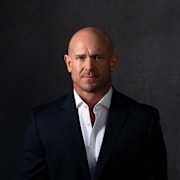"Dickheads Not Welcome": The Critical Role of Character in High-Performance Teams

Character Under the Spotlight
In high-performance environments, whether on the rugby field or in the boardroom, individual character inevitably rises to the surface. Owen Franks, former New Zealand All Blacks, knows this firsthand. Reflecting on his experience with one of the most successful sports teams in history, Franks explains that teams like the All Blacks don't tolerate "dickheads" or selfish behavior.
“You know better than anyone that in high-performance environments, your character gets shown in the spotlight,” Franks shared in a recent interview. “If you’ve got a character flaw that’s bad for the team, you get found out quickly. Rugby can be a brutal environment, and it sorts itself out—if you’re not part of it, you’re out pretty fast.”
This no-nonsense approach to teamwork and accountability has helped the All Blacks maintain an unparalleled win percentage of over 77% across their storied history. But how does character influence team dynamics, and why does it matter so much in high-performance settings?
The All Blacks and the Tenets of Character
The All Blacks’ success is rooted in their team culture, which is encapsulated by 15 principles detailed in James Kerr's book Legacy. These principles emphasize humility, accountability, and teamwork—values prioritizing the collective over the individual.
One standout principle is “No Dickheads”: the idea that toxic behavior undermines team cohesion and performance. In a team where mutual respect and shared purpose are paramount, selfishness or arrogance has no place. Franks describes how teams with weak cultures often allow bad behavior to fester, eroding trust and morale. “Scummy behavior in the background just affects the team,” he notes.
Another principle, “Sweep the Sheds,” reinforces humility. Even the team’s biggest stars are expected to clean up after themselves, showing that no one is above the team. These actions foster accountability, respect, and a sense of shared responsibility—cornerstones of high-performing teams.
Why Character Matters in High-Performance Teams
Research on human performance and psychology underscores the importance of character in team settings. High-performing teams rely on trust, shared goals, and open communication. A toxic team member, or “dickhead,” disrupts this balance, creating conflict, mistrust, and decreased productivity.
According to a study published in The Harvard Business Review, teams with high levels of psychological safety—where members feel safe to take risks and be vulnerable—outperform those with lower levels. Toxic behavior undermines psychological safety, creating a climate of fear and self-preservation rather than collaboration and innovation.
Additionally, research on "social loafing" reveals that individuals are likelier to shirk responsibility in teams when they believe others will pick up the slack. Strong team cultures like the All Blacks counteract this by fostering accountability and emphasizing that every member must contribute fully.
Selflessness Fuels Teamwork
Franks’ experiences with the All Blacks highlight how selflessness and accountability drive success. The team’s emphasis on character ensures that every player aligns with their shared mission: winning together.
“High-performance environments are self-led,” Franks explained. “It’s about everyone holding each other accountable. If someone isn’t pulling their weight, they get called out. But it’s not just about calling out mistakes—it’s about learning from them as a team.”
This culture of shared accountability creates a feedback loop where mistakes become opportunities for growth. Leaders and rookies alike are subject to the same standards, fostering an environment where no one is above the team.
How Teams Can Build a Culture of Character
The All Blacks’ approach provides a blueprint for any team seeking sustained success. Here are a few key takeaways:
- Set Clear Standards: Establish a set of core values that prioritize the team's success over individual egos. Be explicit about what behaviors are acceptable and what will not be tolerated.
- Hold Everyone Accountable: Accountability shouldn’t be limited to leaders. Everyone must be responsible for upholding the team’s standards.
- Foster Humility: Encourage team members to embrace humility and contribute to shared responsibilities, as the All Blacks do with “Sweep the Sheds.”
- Address Toxic Behavior Quickly: Don’t let bad behavior linger. Toxicity can spread rapidly, undermining trust and cohesion.
- Promote Psychological Safety: Create an environment where team members feel safe speaking up, admitting mistakes, and taking risks.
Character Drives Excellence
High-performance teams succeed not just because of skill but because of character. As Owen Franks and the New Zealand All Blacks demonstrate, humility, accountability, and selflessness are the bedrock of sustained excellence.
In environments where pressure is relentless and failure isn't an option, bad behavior harms the individual and the entire team. By prioritizing character, teams can build a culture of trust, collaboration, and resilience, ensuring that the cream rises to the top.
